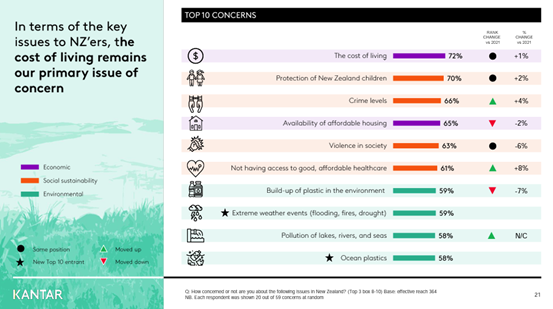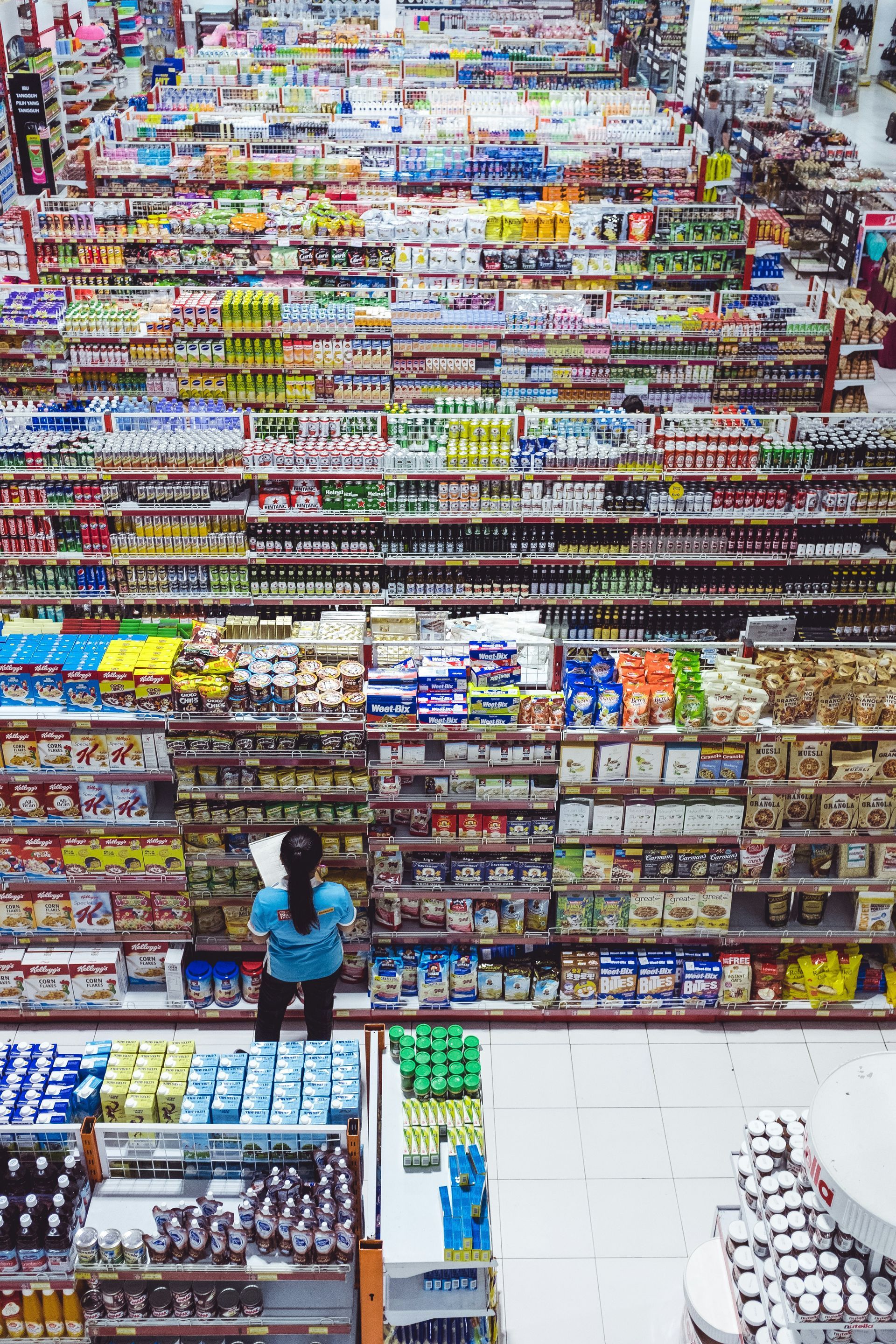Sustainable Business
Sustainability is good business practice, not a mere diversion. Consumers are driving demand for goods and services which are produced sustainably and affordably. Government regulation is changing acceptable practice across all industries with the extension of plastic bans from July 2023. What if you put sustainability at the front and centre of your business strategy? We give tips on how to get started.

What is a Sustainable Business?
MBIE and the Sustainable Business Network describes sustainable business as “doing things thoughtfully by thinking ahead and looking at how your actions impact the environment and surroundings… Making your business more sustainable is about looking at what you do, what you buy, and how you use and dispose of things. It’s also about moving to eco-friendly, local, organic or low-emissions alternatives.”[i] Many sustainable businesses use triple bottom line reporting to convey their commitment to being sustainable.
Sustainability is often touted as the solution to climate change. But MIT Climate, a branch of Massachusetts Institute of Technology, argues it more than that. “What's so interesting about sustainability, and why I've built my career around it, is that it's complex,” says Julie Newman, MIT’s first Director of Sustainability. “It involves people and the environment, extraction, disposal, use—so it's really looking at the complexity of the world and how humans interact with it.” From an environmental perspective, sustainability is concerned with the resources we take from the Earth and how we use them, with an emphasis on not exhausting what the planet can supply.[ii]
What is a Circular Economy?
A Circular Economy is based on three principles: Design out waste and pollution. Keep products and materials in use. Regenerate natural systems. Take Ethique shampoo bars. As of June 2023, they claim to have prevented 28M+ plastic bottles from manufacture and saved 4.5M litres of water by making shampoo bars[iii]. The bars are shipped in cardboard or paper, which can be easily home composted so there is no waste. Their smaller format makes them less bulky to ship around the world. They are powered 100% by renewable energy and offset their carbon emissions from freight and staff travel to their travel providers’ programmes.
Some of the changes are being driven by Government initiatives. The single-use plastic bag ban has been extended from 1 July 2023 to include plastic produce bags; plastic plates, bowls and cutlery; plastic drinking straws and plastic produce labels.
What is Triple Bottom Line Reporting?
The phrase Triple Bottom Line has been attributed to John Elkington, in 1994[iv]. Instead of focussing just on the traditional accounting measure of profit, a company should focus on three measures: Profit, People and Planet. Profit includes not only company gains but paying fair share of taxes and community sponsorship. People centres on its stakeholders – employees, suppliers, customers and wider community. Planet is concerned about environmental impact.
Corporates have been using triple-bottom line reporting for decades, and this is now filtering through to startups gearing for a capital raise. Private company suppliers are increasingly being asked for the “provenance” (origins) of their raw materials and components, so that corporate and government customers can more reliably report on meeting their environmental and social impact targets.
Benefits for your business
Cost savings – designing products with fewer parts, less wastage and less packaging, can save production costs, waste removal costs, warranty costs, freight costs, storage costs. Energy efficient office and production areas can save on energy bills. Electronic data transmission within a business can save on printing costs, and reduce time spent preparing, printing and reading reports.
Social licence for Eco-conscious consumers – 35% are actively eco-conscious (increase of 5% since 2022)[v] That is, people who actively choose to buy from sustainable businesses, reduce the waste they produce, and other behaviours to help the environment.
Compliance and Supply chain transparency – Corporates and government departments (local and national) are actively looking for local suppliers who can support their procurement efforts. For instance Auckland Council has five areas for focus:
· promoting supplier diversity with Māori and Pasifika owned businesses and social enterprises
· working with local suppliers to deliver contracts within their local board areas
· providing quality employment opportunities for target communities
· zero waste by 2040
· reducing carbon emissions.[vi]
Culture of Innovation – You’ll need creativity and innovation to make long-term solutions. If you have a system and culture which encourages this, you may open up business opportunities beyond the immediate problem you are trying to solve.
Desirable place to work – flexible working practices, innovation culture, environmentally conscious systems and less time commuting, make a workplace more attractive for prospective employees.
Building Brand Value – all these benefits help to increase the value of your brand, so consumers and investors are willing to pay more to be part of your story.
Cost of Living Headwinds
There can be a disconnect between consumer behaviour and intent, because of the recent rise in cost of living. In the Kantar Better Futures 2023 report, the cost of living is the top concern for New Zealanders in 2023.[vii] For those who are struggling or managing, environmental concerns don’t rank in the top 5 concerns. These consumers are less likely to make eco-conscious choices if there are more affordable options.
Where to Begin?
Create a vision for sustainability in your business, then break it down into a strategic plan with measurable targets. Chunk down into shorter-term actions and targets, and tackle one issue at a time. If you have a 10-year vision, then what is your focus for year 1? Quarter 1? Month 1? What resources, including time, will you need to apply across the next 12 months? Put a project team together and encourage them to identify and solve the issues. One method is to apply root-cause analysis to problems.
Root-Cause Analysis
Sakichi Toyoda of Toyota Industries used the 5 Whys technique, which is to keep asking why a problem is occurring until you reach the root cause. Sometimes the root cause may be far away from the site where the problem is evident.
An example might be: There are too many defects, causing waste and rework. 1.Why are there defects? The drill holes are inconsistent. 2. Why are they inconsistent? The temperature is too high and causes stretching. 3. Why is the temperature too high? The gauge is broken and the worker must guess. 4. Why has the gauge not been fixed? We don’t have regular maintenance. 5. Why not? The worker doesn’t feel empowered to report problems. Solution: set up a regular maintenance program and ways for workers to report problems.
Resources
GenLess has lots of great ideas for businesses. They include some quick wins to help you get momentum, such as bike parking, lighting improvements, vehicle fleet options. But they also have product design and production suggestions that can help you with your finances as well as your emissions. For instance, optimised cutting patterns, getting an energy audit and monitoring, tracking manufacturing failure rates[viii]
Sustainable Business Network holds monthly workshops on the first Wednesday of every month to October 2023[ix]. There is free entry to their Sustainable Business Awards, which has nine different categories. The 2023 award deadline is Friday 14 July 2023.
Conclusion
There is growing pressure from consumers and Government, for businesses to be sustainable. Looking not only at profit, but people and planet as well. There are headwinds though, with the cost of living impacting consumer behaviour.
If sustainability is not already part of the DNA of your business, it can feel overwhelming to begin. Start with an area that you and your team feel strongly about, such as reduction of waste. Use Root Cause Analysis to identify why the waste is occurring and problem-solve how you can eliminate or mitigate waste. Once you begin, there is a wealth of resources to help you towards your sustainability goals. If you need help and advice with your strategic plan, remember to reach out to your chartered accountant.
- Serena Irving
Serena Irving is a director in JDW Chartered Accountants Limited, Ellerslie, Auckland. JDW is a professional team of qualified accountants, auditors, business consultants, tax advisors, trust and business valuation specialists.
Download a PDF version here or contact the author by email. Like our Facebook page for regular tips.
An article like this, which is general in nature, is no substitute for specific accounting and tax advice. If you want more information about the issues in this article, please contact your advisor or the author.
[i]
https://www.business.govt.nz/getting-started/business-planning-tools-and-tips/what-is-sustainable-business
[ii] https://climate.mit.edu/ask-mit/what-sustainability-it-same-thing-taking-action-climate-change
[iv] https://www.investopedia.com/terms/t/triple-bottom-line.asp
[v] https://www.kantarnewzealand.com/latest-thinking/better-futures Better Future 2023 report
[vi] https://www.aucklandcouncil.govt.nz/about-auckland-council/how-we-buy-products-and-services/sustainable-procurement
[vii] https://www.kantarnewzealand.com/latest-thinking/better-futures Better Future 2023 report
[viii] https://genless.govt.nz/for-business/product-design/design-products-sustainably
[ix] https://sustainable.org.nz/learn/training/starting-out-on-sustainability




